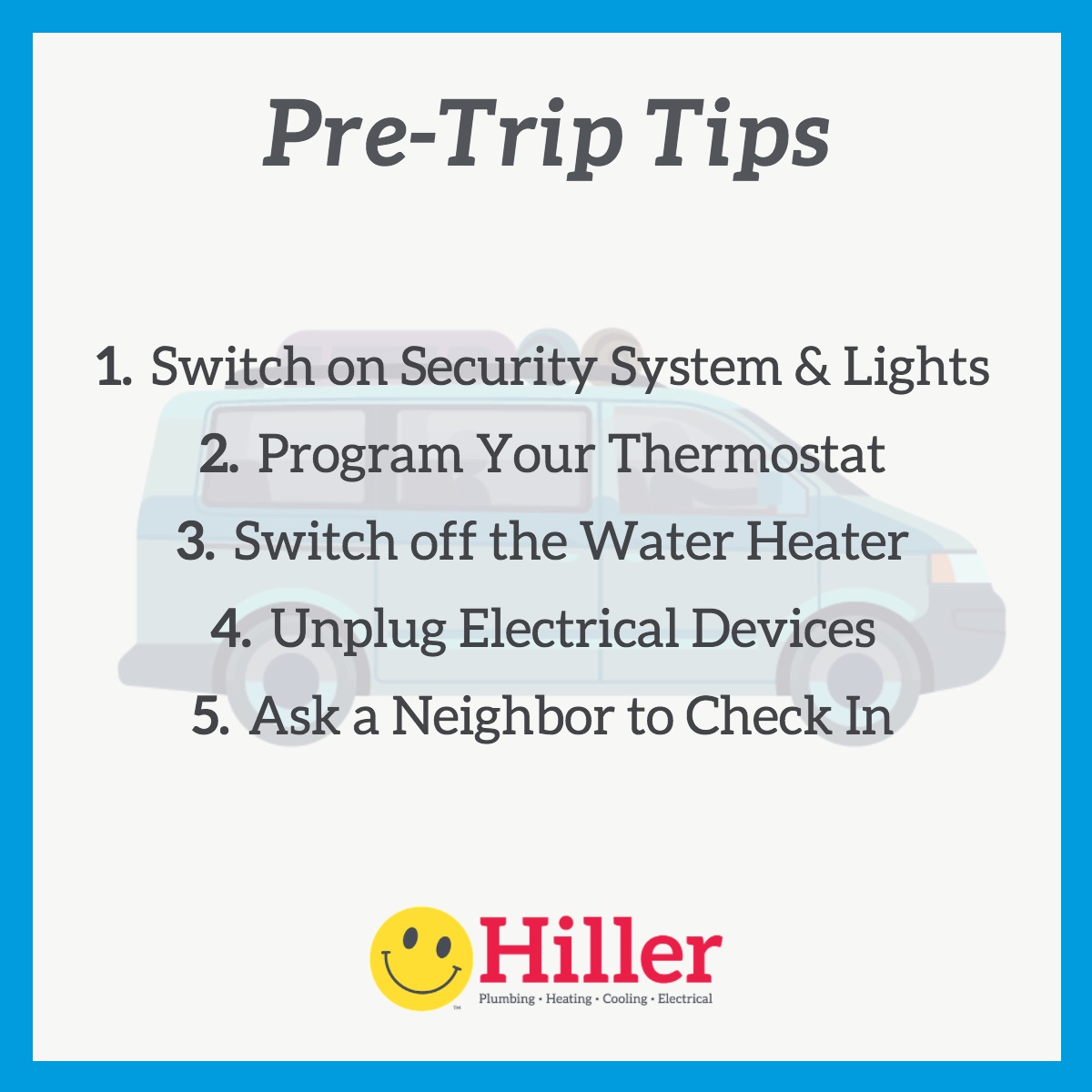How to Secure & Protect Your Home While on Vacation
Enjoy reading the latest DIY articles and saving money?
Receive our latest helpful hints, tricks and savings, directly to your inbox.
Posted June 1, 2017
“Over the river and through the woods to grandmother’s house we go!” It’s that time of year again — when we begin to hear classic holiday songs reminding us that Thanksgiving at grandma’s house is just around the corner. Ready or not, ‘tis the season for turkey and traveling!
We know you’re busy packing and preparing for family festivities. You’ve got enough on your plate without worrying about how you’ll protect your home while you’re away. That’s why we’ve come up with the best ways to secure your home this holiday season.
Switch on those motion sensors, unplug the electronics, and don’t forget to adjust the thermostat! You’re ready to go with these vacant home security tips.
1. Switch on the Security Lighting
Let’s start with the outside of your home. The measures you take to secure the exterior of your property can be enough to prevent any potential disturbance. By turning on motion-sensitive outdoor security lights, you create the illusion that people are home and alert to visitors.
A particularly helpful feature to security lighting is a motion sensor. Technology has become sophisticated enough that motion sensors will not illuminate for smaller animals and pets. Lights will be triggered when they sense distinct movement near the front door, side gate, or back entrance. They can be connected with your home security system. When a motion sensor is activated, your alarm will be too.
Additionally, a timer applied to your exterior lighting provides both protection and energy efficiency by illuminating the home only during desired hours. A timer isn’t just useful outdoors; consider using a timer with specific indoor lights as well. A light instinctually signifies that someone is home!
Don’t have security or porch lighting? Want a motion sensor or timer installed on your current system? Contact Hiller for information on how to get started.
Benefits of Landscape Lighting | Exterior Lighting Solutions
2. Adjust the Thermostat
Especially in the winter, it’s important to consider the comfort and safety of your home while away. That’s because temperatures can become severely cold or wet, threatening the functionality of the plumbing and water piping on the interior of your walls.
Set the thermostat to 55 degrees in the colder winter months. That way there is no risk of your pipes freezing while you’re away. If you live in a milder winter climate, however, consider turning off your thermostat completely. By adjusting or switching off your thermostat, you’ll be giving your HVAC system the break it deserves as well.
Learn more about your thermostat options here.
Read more about how to properly program your thermostat.
3. Switch off the Water Heater
There’s no need to heat water in an empty home. If you feel uncomfortable turning off your water heater completely, turn it to the lowest setting. When you return, everything will kick back in quickly, and you’ll have saved money and energy while away.
If you have an electrical water heater, turn the temperature dial to its lowest setting, or turn it off completely at the circuit breaker panel.
If you have a natural gas heater, there is an actual “vacation mode” that can be utilized for this very circumstance.
Learn more water heating tips here.
Read more about how to protect your water heater.
You may also be interested in switching over to a more energy-efficient “tankless” model.
4. Unplug to Avoid Power Surges
There is no way to predict what weather will affect your property while you are away. Imagine coming home to find your electronics fried due to a damaging power surge. The best prevention method is simply to unplug. Before running out the door, run through the house and unplug any electronics that will not be used while you’re gone.
These items include coffee makers, lamps, gaming systems, cell phone chargers, and even the television. Remember: they’re using energy even when you’re not using them.
You may also want to consider a whole-home surge protection system, which protects your home from dangerous and costly power surges 24/7. No need to unplug with these prevention systems in place.
5. Tell a Neighbor
If you’ve covered all of the above bases, be sure to do one last thing – let a neighbor know you’ll be away. It’s always good to have eyes and ears open even when you can’t be around. Tell a trusted neighbor, either next door or across the street, that you’ll be away and for how long.
If applicable, ask them to pick up your newspaper delivery so there isn’t any mail piling up in the yard. Also, give your contact information in the case of an emergency, and give them permission to call the local authorities to report any suspicious activity.
It is advisable, however, not to share your departure on social media. I know this can be difficult, but better safe than sorry. Upload pictures from your vacay after you return from your trip. That way you can still engage in social media without risking the security of your home.
With these tips to protect your home, it won’t just be secure during the holidays, but all year round. Now that your home is safe, all that’s left to say is, “Safe travels!”
 Daily Promotion
Daily Promotion
$500 Off Tankless Water Heater
Upgrade your comfort and give back this season.
Get Promotion
